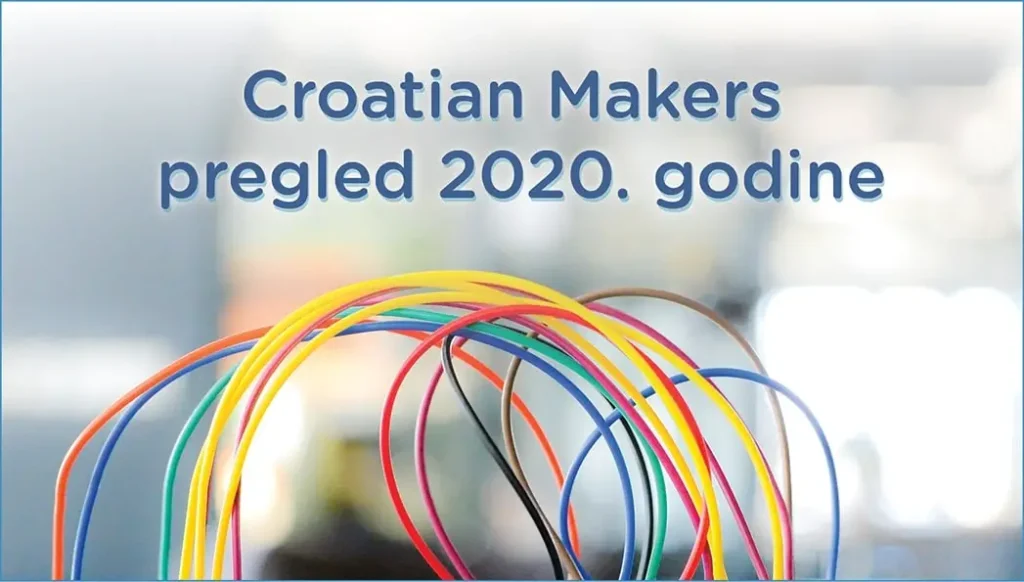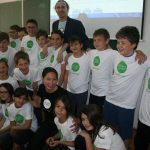January 1, 2021 – The year 2020 was the most difficult for many, especially for children. With Croatian Makers, the largest extracurricular STEM program in Europe, the Institute for Youth Development and Innovation made a special effort to make up for at least part of what children lost.
The Institute for Youth Development and Innovation (IRIM) is the largest non-state educational program in the EU that helps children realize their potential and be equal citizens of the 21st century.
Launched in Croatia, IRIM primarily operates there but has also expanded its activities to Serbia, BiH, and Kosovo. It focuses on the development of digital and scientific literacy and technological and other competencies within the STEM area for young people.
This year, the challenge was all the greater because they had to pay special attention to the heavy workload and stress to which were exposed the project participants – children and youth. TCN brings their 2020 review by topic below.
Croatian Makers Robotics League
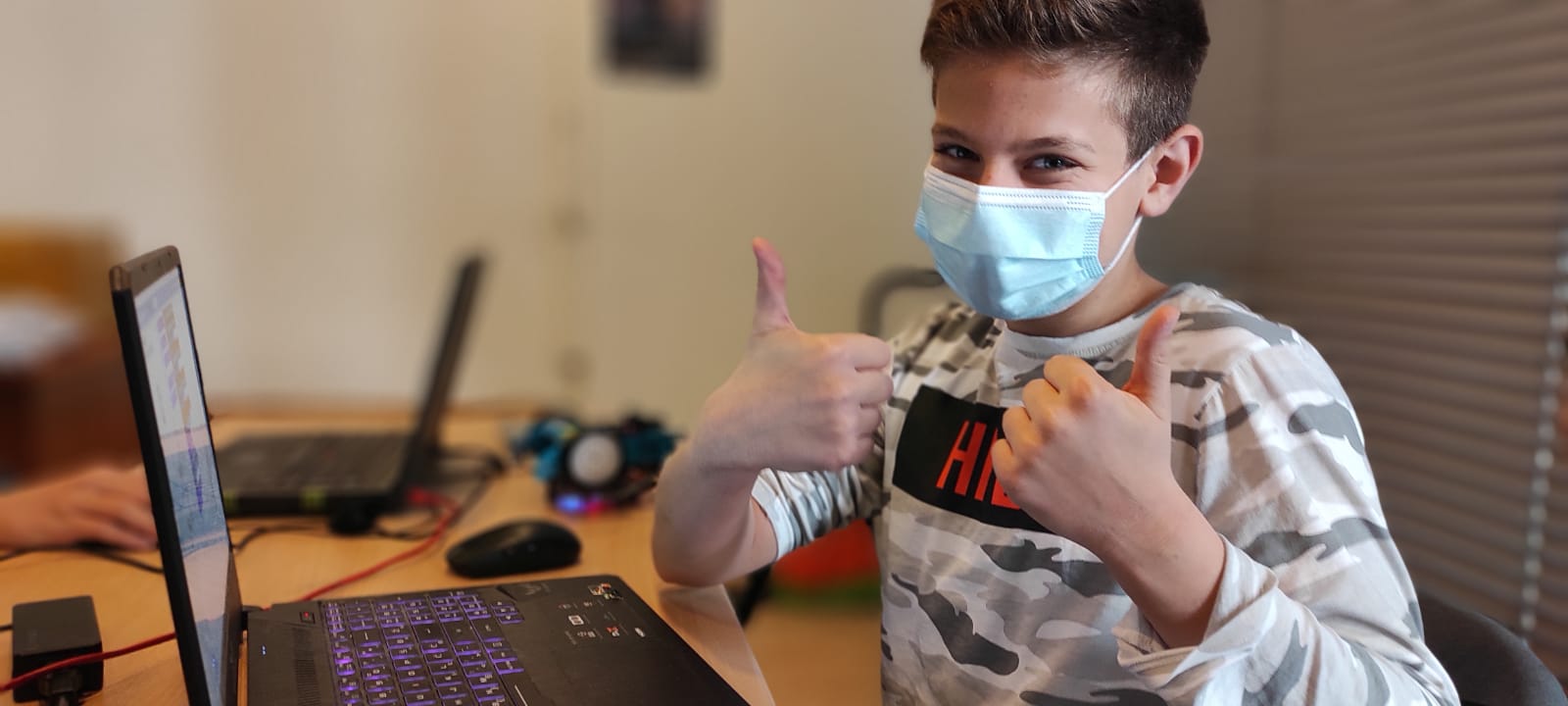
Source: IRIM/Croatian Makers
Robotic League is the first major IRIM project which began in the 2015/16 school year. The goal is to broadly involve robotics, automation, and programming in primary school education.
They have included more than 600 schools and non-profit organizations and donated 3,000 mBot robots (5 per institution). In each of them, they educated at least one mentor free of charge so that he could work with children.
Despite the pandemic and the introduction of online classes, IRIM managed to hold as many as three of the planned four rounds. The League’s principle is regularity and locality, not a one-time competition for the best. In this way, they achieve equal opportunity and better integration into children’s education.
They plan to hold three rounds of the League this school year. All Croatian Makers League’s institutions can participate despite the pandemic. They have adjusted the competition, and all activities are online. This school year, the competition’s theme is the exploration of the planets and the robot’s return to Earth, as a continuation of the past year in which the robot embarked on a space journey.
Digital Citizen 2.0
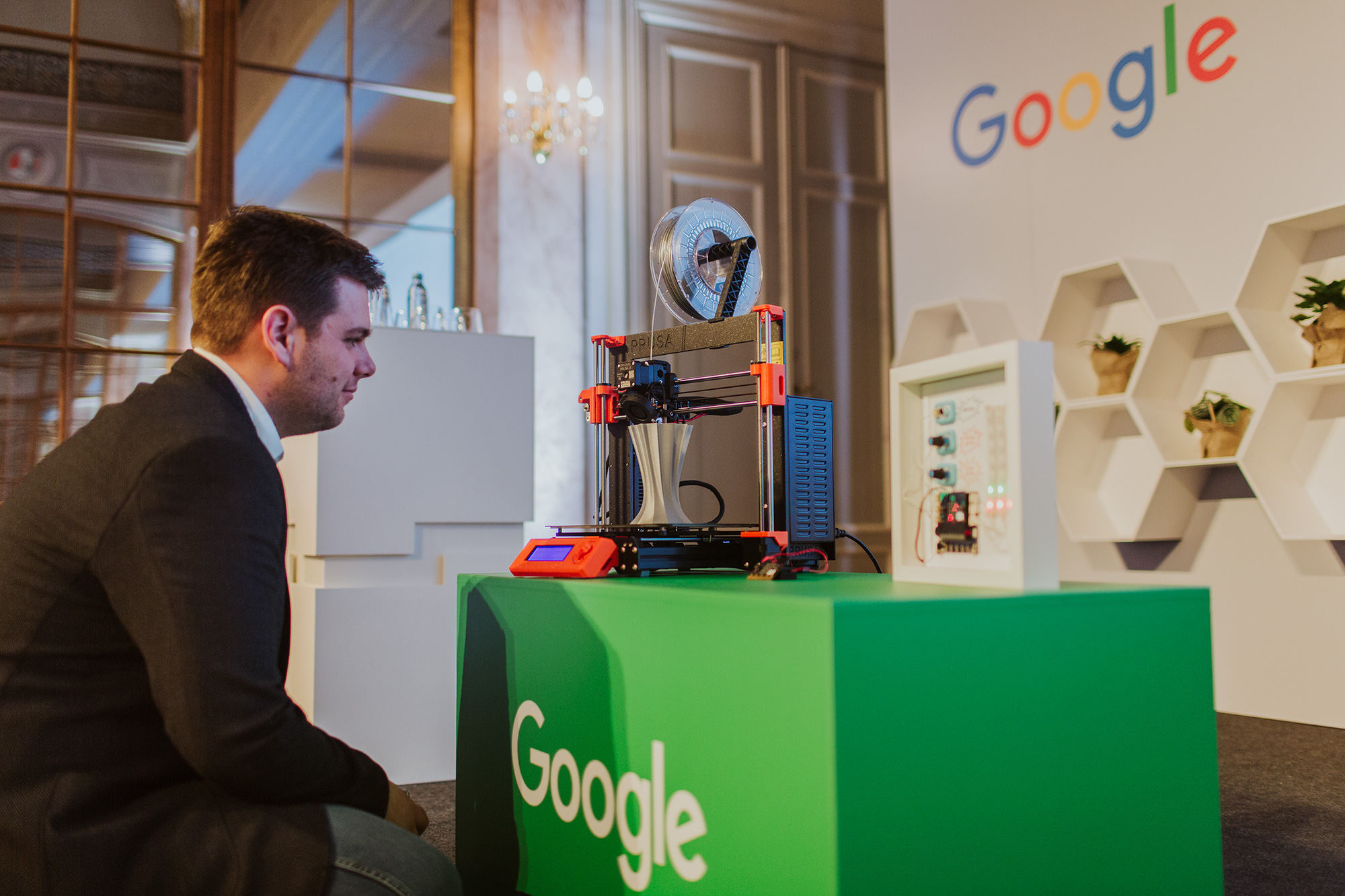
Source: IRIM/Croatian Makers
In February, they continued the Digital Citizen 2.0 project, a collaboration with Google.org that supported it with an additional 400,000 dollars. The project’s goal is to develop digital skills in libraries, transforming public libraries into digital innovation and education centers.
They do this with technologies such as microcomputers, robots, and 3D printers. They make modern educational technology accessible to adults and children, which will enable the introduction of digital skills in local communities.
The project is international, funded by Google.org, and takes place in 170 libraries in Croatia, Bosnia and Herzegovina, Serbia, and Kosovo.
In August and September, they held 100 workshops (one in each library in the project in Croatia) where they donated micro:Maqueen robots to libraries and educated librarians on this equipment.
New educational web portal
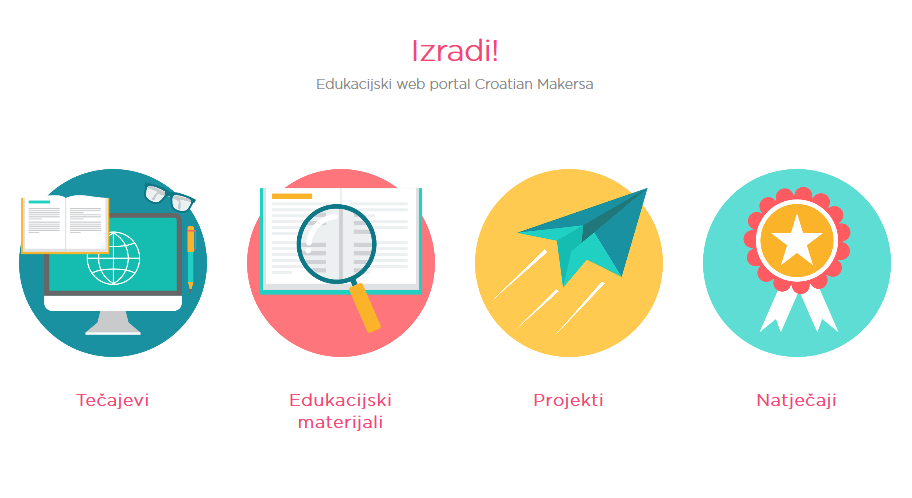
Source: IRIM/Croatian Makers
During the summer, they released a new and improved “Izradi!” educational web portal. As before, users can educate for free about using the technologies they use, but with greater interactivity.
Users also have access to a system of courses that guide them by learning about technologies and making it fun. In the end, they receive certificates with learning outcomes and acquired knowledge. The portal is adapted for children and adults, and by participating in the courses, users can also win “maker “badges.
Prize competition
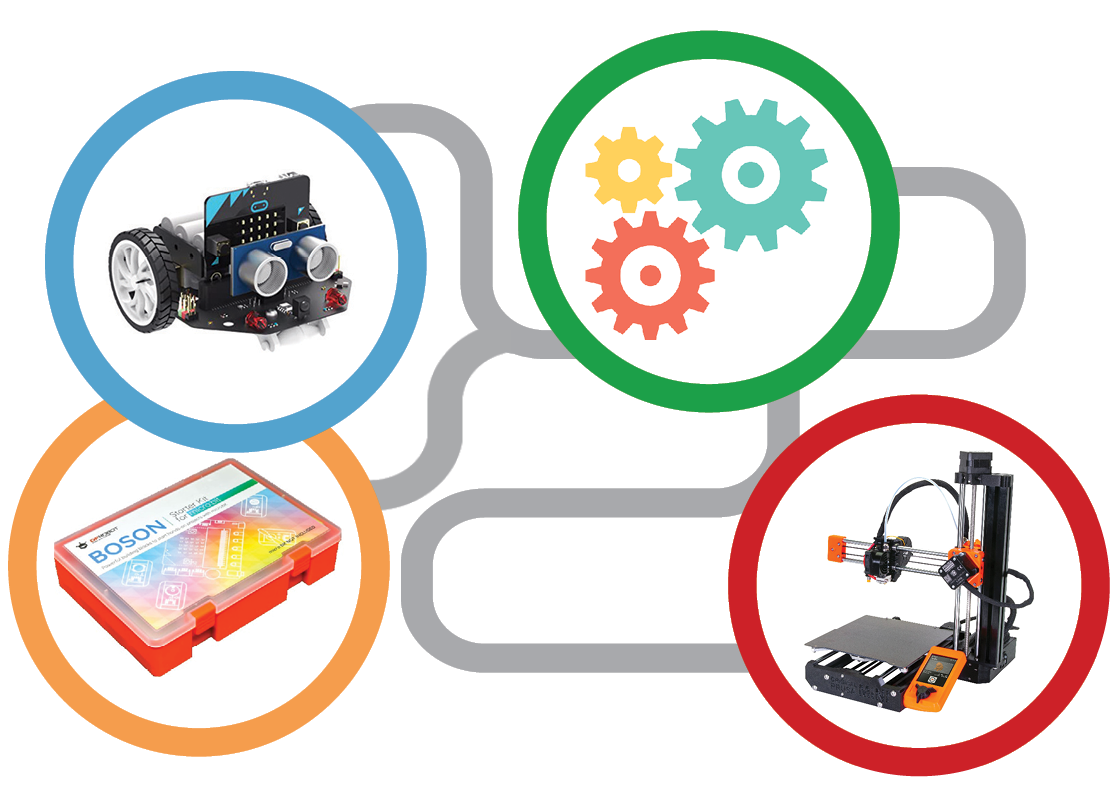
Source: IRIM/Croatian Makers
At the beginning of December, they opened two “Borrow, make, conquer “creative competitions. All interested can participate, regardless of age, education, and prior knowledge of programming, device making, and ‘tinkering.’
The competition lasts until February 1, 2021, and the applications are still open. The main prize is a Prusa Mini 3D printer.
Digital Libraries for Local Development
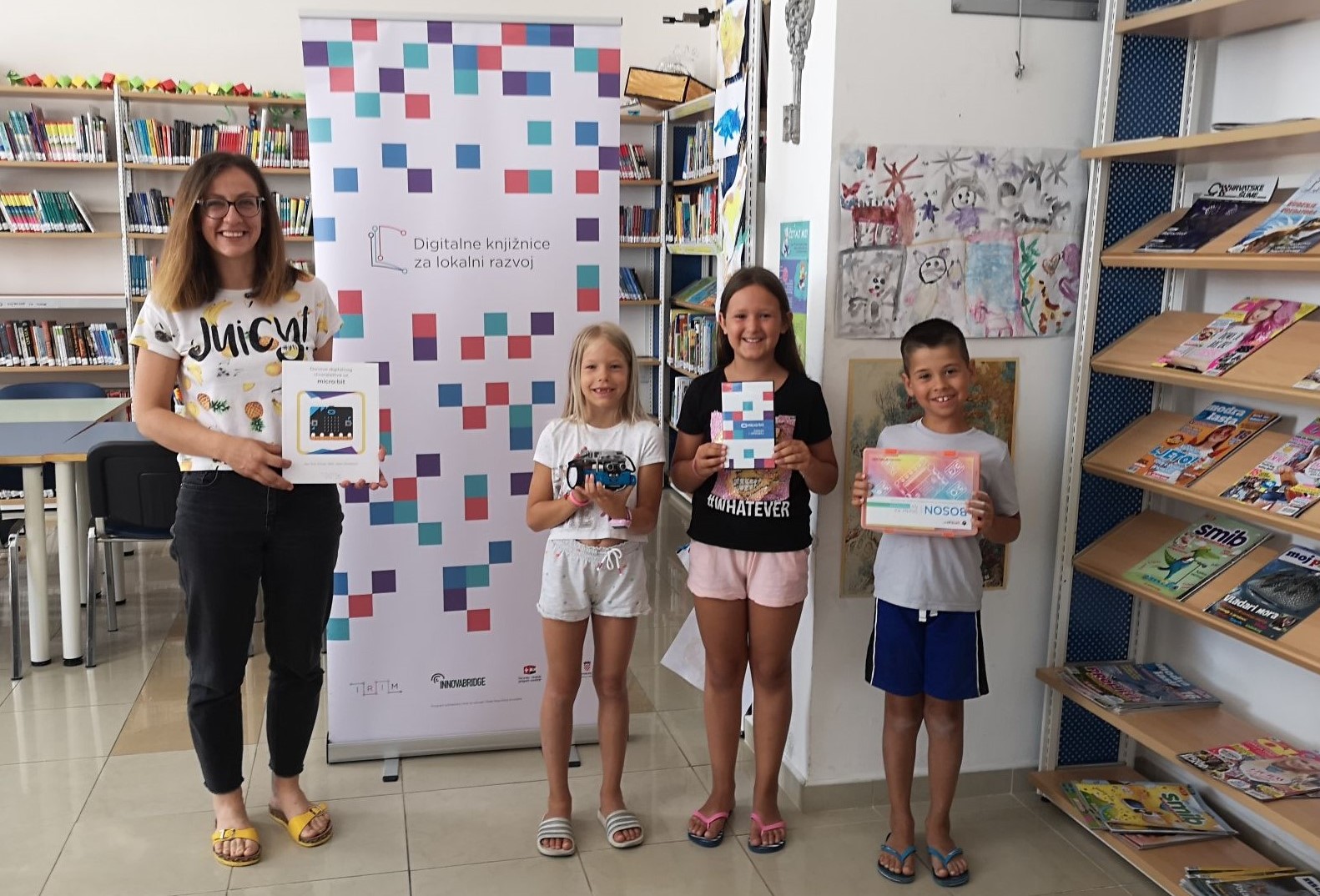
Source: IRIM/Croatian Makers
This project aims to strengthen libraries in Croatia and Switzerland. The goal is for them to become centers for the acquisition of STEM knowledge and digital competencies. The project uses a ‘crowdsourced’ network of devices for measuring atmospheric variables, which is free and publicly available in libraries.
They held two educational cycles of workshops around Croatia in which IRIM educators visited each library on two occasions. The first time by donating handbooks with a short introductory education, and the second time with the donation of AQ:bits and education.
AQ: bit is a device designed by IRIM educators that can be used to measure atmospheric variables (concentration of micro-particles in the air, humidity, pressure, temperature) and are intended as an educational supplement for micro:bit.
Within the project, they held 200 workshops and issued two handbooks as well.
Source: IRIM/Croatian Makers
Generation NOW
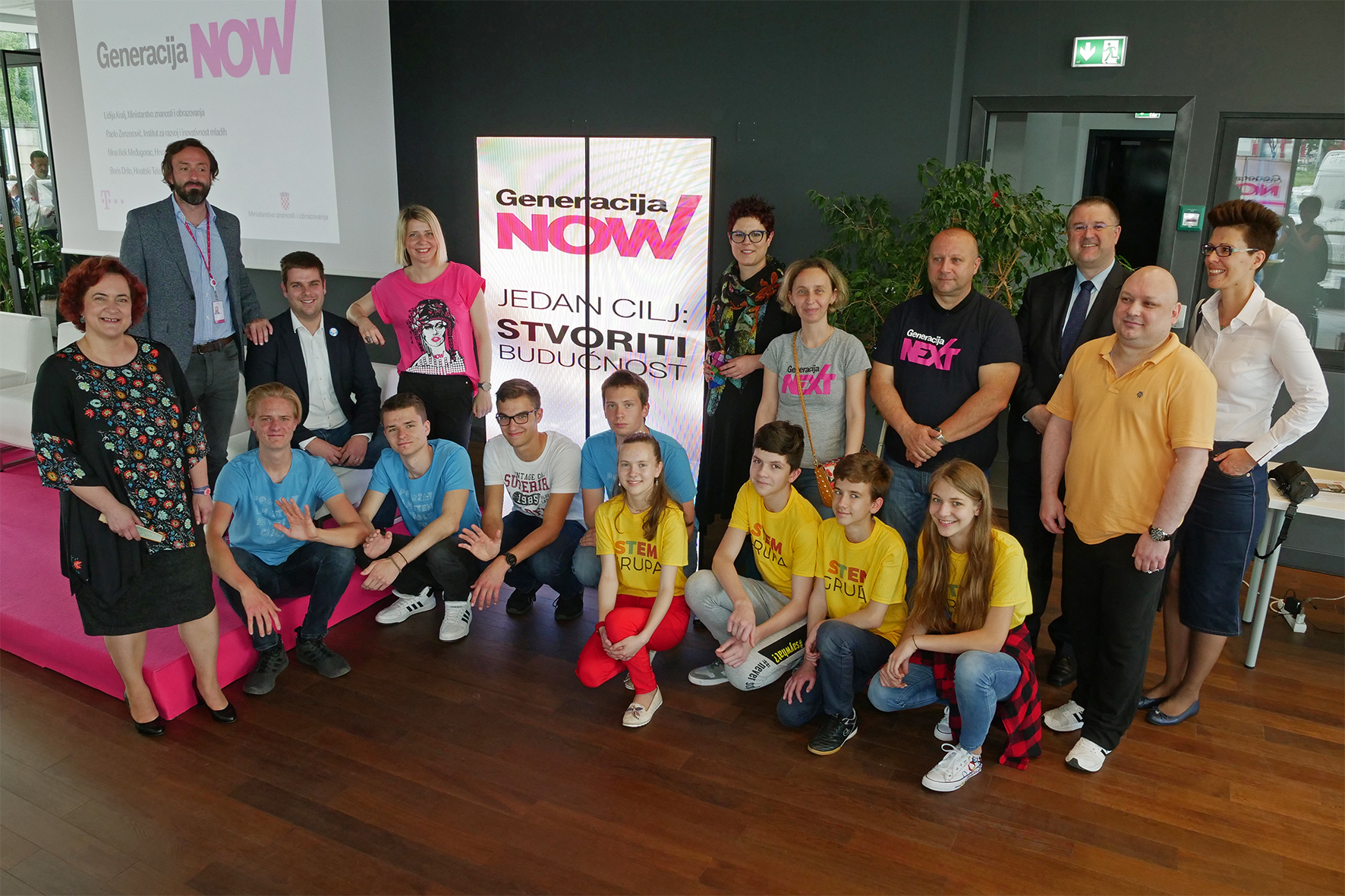
Source: IRIM/Croatian Makers
For several years now, IRIM has been implementing projects in partnership with Hrvatski Telekom. The aim is to introduce Internet of Things technologies in schools and associations throughout Croatia.
The goal is to connect existing and new knowledge in the use of Internet of Things technology, develop creativity, innovation, and create an opportunity for children to implement IoT projects from concept to finished model.
In the school year 2019/20., they included 110 institutions in the project and 2020/21—75 of them. Due to the coronavirus pandemic, the project will be extended for another year to allow all participants to create imaginary projects, present them in the final competition, and win valuable prizes.
Coronavirus pandemic and IRIM
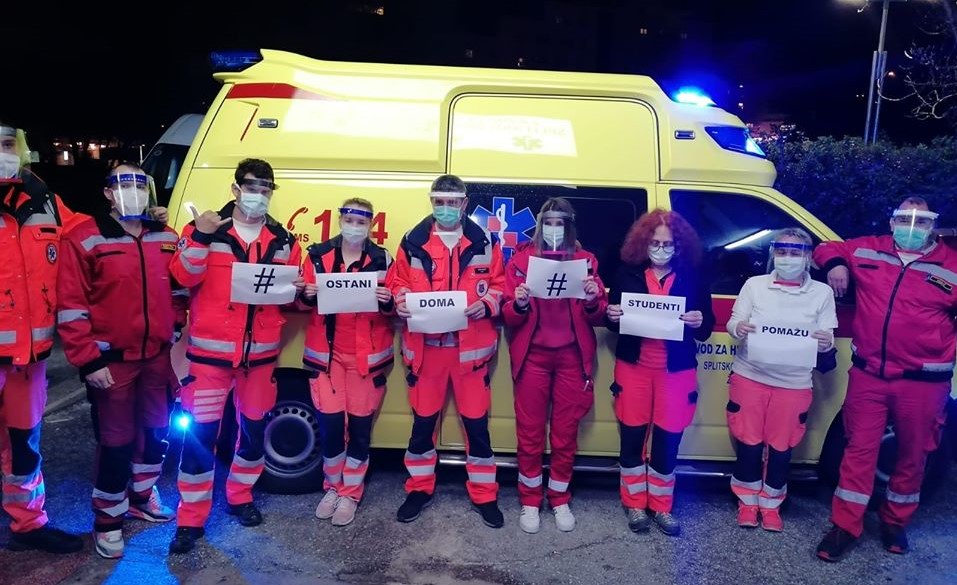
Source: IRIM/Croatian Makers
When they found themselves in a situation where everyday work and activities were no longer possible, they decided to join the Croatian Student Union’s initiative to produce protective visors.
In just a few days, with partners and associates, they managed to organize and ensure protective visors’ production. In the end, they donated 6,500 protective visors, which covered the initial needs of hospitals.
To read more news from Croatia, follow TCN’s dedicated page.

